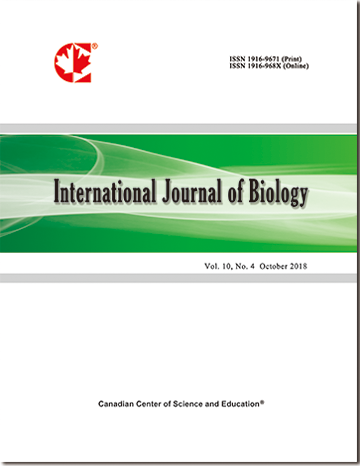A Study on Laboratory Rearing of Lady Bird Beetle (Coccinella Septempunctata) to Observe Its Fecundity and Longevity on Natural and Artificial Diets
- Muhammad Ashraf
- Muhammad Ishtiaq
- Muhammad Asif
- Muhammad Adrees
- Muhammad Ayub
- Tariq Mehmood
- Muhammad Awan
Abstract
Development and reproductive potential of the Coccinella septempunctata L. (CSL) was conducted underlaboratory conditions to determine its fecundity and longevity on natural and artificial diets. Tests were made on
laboratory rearing materials and all development stages were carefully recorded. Success ratios in these
experiments were a matter of logistic and synchronization of these life cycles, the plant phytophagous and
entomophagous insects. A positive correlation was obtained between food consumption and egg production, so
fecundity of CSL is affected by the type of food. CSL consumed highly significant (Rhopalosiphum maidis) 32.2
aphids per day as compared to other treatments. Oviposition response was the maximum on these beetles which
consumed 1st and 2nd instars of Macrosiphon roseae. CSL reared under artificial diet showed more longevity 41.6
days on plain water. Greater emphasis was pertinent on evaluation of predator specificity, understanding of
colonization in new environments and assessment of community-level interactions to maximize the use of
Coccinellids in Biological Control (BC).
- Full Text:
 PDF
PDF
- DOI:10.5539/ijb.v2n1p165
Index
- ACNP
- AGRICOLA
- BASE (Bielefeld Academic Search Engine)
- CAB Abstracts
- CiteFactor
- CNKI Scholar
- CrossRef
- DTU Library
- Elektronische Zeitschriftenbibliothek (EZB)
- Excellence in Research for Australia (ERA)
- Google Scholar
- Infotrieve
- LIVIVO (ZB MED)
- LOCKSS
- Max Planck Institutes
- MIAR
- PKP Open Archives Harvester
- Qualis/CAPES
- ResearchGate
- ROAD
- SafetyLit
- SHERPA/RoMEO
- Technische Informationsbibliothek (TIB)
- Universe Digital Library
- WorldCat
Contact
- Ryan JonesEditorial Assistant
- ijb@ccsenet.org
